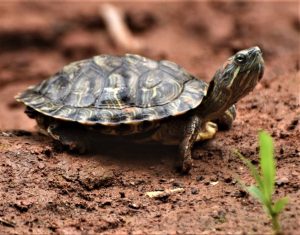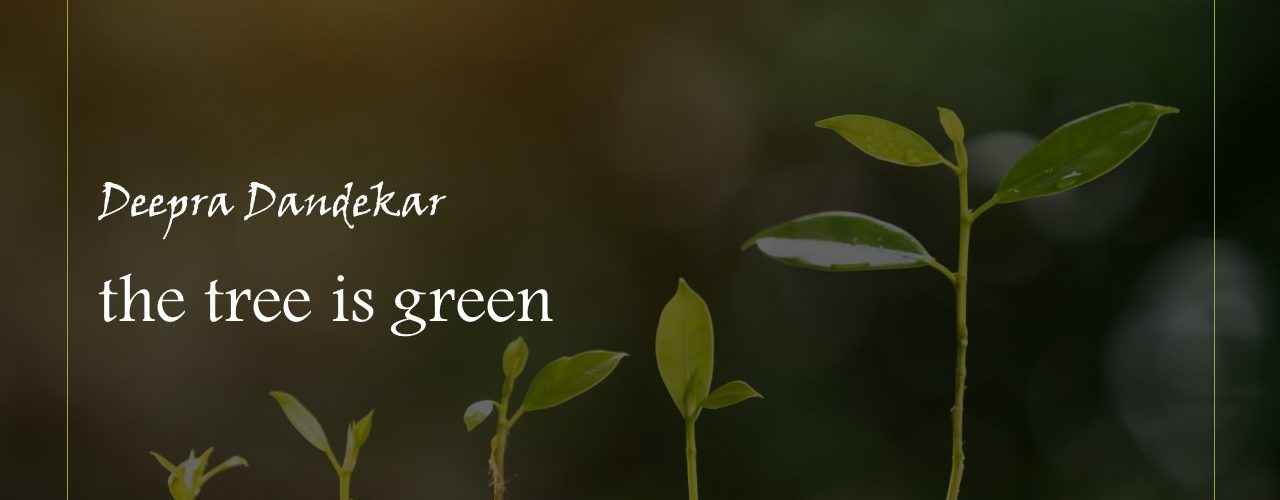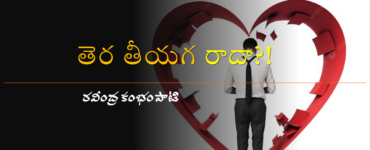On the 5th of September 2018, the Indian Express remembered that it had been forty years to the 1978 flooding of the River Yamuna in Delhi. What a perilous time it had been for us Delhi wallas! Even as the Yamuna bridges were hastily closed due to rising water levels, the water soon entered north Delhi, breaching the Yamuna embankment on two sides: from the Jahangirpuri Azadpur side, and from the Najafgarh Nala of the Mukherjee Nagar Timarpur side. Soon, the black and dirty back-tide, full of floating garbage entered old Delhi and Kashmiri Gate, flowing over the ring road. It stank unimaginably – not really like garbage, open sewers, or gutters – it smelt more alive and aggressive, like a monster.
My parents worked at the Delhi University, and we stayed in Tagore Park, a small colony of Model Town at the time. There was a truncated marshy leg of the Yamuna river-embankment in Tagore Park that was an extension of the larger river embankment from behind Nirankari Colony. This marshy leg was otherwise dry as the river was quite far away and was called the ‘playground’ where boys played cricket. That year, there had been intense rainfall in the Yamuna catchment area, and the radio warned of the danger of flooding, since Delhi’s drainage was not too good. But on the other hand, flooding was common in monsoons. This was September after all! The panic began one night, after the radio announcer warned listeners that the old Tajewala Barrage, 250 kilometres north of Delhi, had released an unspecified amount of water. The radio announcer said that the water would reach Delhi in ten hours. Though my grandfather and uncle lived close by, and my father had already discussed the danger of flooding with my uncle who lived on the first floor, we still felt safe in our ground floor house, as Tagore Park that was itself higher than that marshy leg of embankment, the ‘playground’ behind the colony. Also, no one knew how much water Tajewala had released. We thought it would be the slum areas nearer to the Yamuna that would be affected since they were already being evacuated due to excessive rain and local flooding. But we were wrong, as most of us are, when we think that calamity always, and only befalls others. What was low-key panic the night before, ripped into action at 3am, when the night watchman on duty, who patrolled our locality began running down the street, banging on every metal gate with his large bamboo stick, shouting: pani aa raha hai (the water is coming)!! As the lights abruptly jumped on in every home, people began scrambling and running. My mother who had recently had a small auto-rickshaw accident was nursing a painful, fractured toe, made worse by the wet weather. And now this! We hurriedly put together a few of our clothes, but had to unfortunately leave the house at it was – all the furniture, kitchen cannisters full of food stocks, beds, books, and everything else. There was no time to pack, though my father did hurriedly carry a few things up to the roof. But carrying furniture to the roof was impossible. When I asked Baba what happened, he calmy replied: bonna eshechhe baba (the floods have come, child)!
As we saw some people already putting up tents covered with tarpaulin on their roofs, where they would temporarily stay, we ran to my uncle’s first-floor house, my mother hobbling along painfully – and at a small distance I saw the black water welling up from the side of the ‘playground’, creeping up along the road and filling up the road, as if it were an empty washbasin that would soon overflow its edges. I was four, and have only brief photographic snapshot memories from the time. It was hellishly warm and sultry, and there was a power outage in North Delhi. Newspapers constantly brought bad news of havoc, and I remember sitting long hours with my father in the first-floor balcony of my uncle’s apartment, looking down at the dark surging waters that stank to high heavens. People on small rubber boats laughed and hooted as they went to fetch milk from the nearby Mother Dairy. My mother meanwhile recalled the 1961 floods of Pune when the old Panshet Dam on the River Mutha had burst early one morning on the 12th of July. There was havoc in Pune as all the waters from the Khadakwasla water reservoir of the Panshet damn rushed into the old city. My mother had gone to school, that was in the old city, in Narayan Peth, but the children had been immediately disbanded. There was so much chaos in Pune that my mother could hardly cross the Bund Garden Bridge over the Mula-Mutha to Yerawada, back home. My grandfather in Delhi, on the other hand, though himself in extreme discomfort and anxiety, was slightly gleeful. Although this made my father angry, not much could be said, as my grandfather’s glee was a generational issue. He had always been mightily terrified of thunderstorms, having grown up in a village in Faridpur in East Bengal next to the Meghna River. Everyone teased him for his fear of thunderstorms, patronizing him by saying that this was Delhi after all, and nothing of the sort that usually happened during storms in his Faridpur was ever likely to happen in Delhi. The 1978 floods in Delhi vindicated him a little, and though he was extremely anxious and afraid of the water, there was a part of him that felt avenged! The news said that Model town had been hard hit, with some areas recording up to 2 metres of water was rife in the air.

That year of 1978 brought me many first-times. For instance, that March saw a sudden freak tornado sweep through North Delhi. Originating in Roshnara Bagh, the tornado devastated the Delhi University area, travelling alongside the Najafgarh Nala, before fizzling out at Probyn Road. Though I did not remember the tornado, at least 30 people had lost their lives. My father later told me how scary it had been to see the revolving pole of that tornado in the near distance, that had signboards and huge branches flying around in it. He said he saw a car on top of an electric pole at the Mall Road near Khalsa College. That summer vacation, I had watched my first movie in a cinema hall: Shyam Benegal’s Junoon. I had been deeply impressed and frightened of the Fakir in the film’s beginning Qawwali. I had been gifted my first comic book on my birthday that year, about an evil robot called Klang-Klang, who threatened to bring disaster to the world – like the bonna, which my dad had said, had just come. My dad read out the comic book to me and we looked at the pictures with deep interest. I slept next to my father in that little first floor balcony clinging to him, while we all grew used to the all-pervasive stench. It was the time when everyone agitated over Ranga and Billa, who just the month earlier, in August, had abducted, perhaps raped, and murdered two school children, the siblings Geeta and Sanjay Chopra who were from a good school and upper-middle class family in Delhi. It was the Nirbhaya case of my childhood, and my father told me that Ranga and Billa were the worst kinds of Klang-Klangs in the world. And finally, 1978 was also the year when Gungadutta came to us.
As the water receded, the cleaning operation began. Our home was wrecked, and all my parent’s small savings that Durga Puja went into buying new mattresses, pillows, bedsheets, food, and furniture. We had to rewire the electricity and my father cried over his swollen books that lay stinking, crinkly, and drying in the sun. When I tried to comfort my father, he explained how lucky we had really been, compared to many other people in Delhi. The mark of the water on the inside walls of our home remained visible for many years – a mark that was high above my head back then, but a mark which I aspired to reach one day. However, there was a beautiful silver lining to it all. As my father cleaned the house of the slime, mud, and garbage that the receding Yamuna waters had left behind, he found a small turtle struggling and stuck in the mud. He decided to rescue it. He washed the fellow and placed him in our pink tub, in which I was sometimes bathed. He half-filled the tub with fresh water, and put in green leaves (I think palak and methi leaves) and a few tomatoes. When I and my mother returned, my father had already finished cleaning, and the little turtle poked his head above the water in the pink tub, where he sat busily chewing. It was the surprise of a lifetime. I had never seen a turtle before, and definitely not at such close quarters. I was delighted and emitted deafening squeaks I was later told. We named him Gungadutta and I would lovingly call out to him at all times of the day, as I sat almost transfixed next to his pink tub staring at him, and even having my meals sitting down there, next to him.
Gungadutta was a beautiful fellow with a designed shell. My mother let me feed him small rolls of dough (not larger than homeopathy sugar pills) from her daily preparation of rotis, and Gungadutta was clever. He knew when I came with the dough pills and gulped each of them down happily, but retreated his head inside the shell, if I poked my finger through the water to stroke him. My father let Gungadutta out for little walks in the garden, and sometimes cleaned his shell gently with an old toothbrush. One could spot Gungadutta walking around, chomping philosophically on the grass, and nibbling at flowers. But the Yamuna waters had not receded completely. It remained stagnant in large fetid pools in the marshy ‘playground’ and my father often took me there, for I felt driven by morbid curiosity and dread to see it. The municipality workers sprayed gammaxene everywhere, and went around in little vehicles fumigating Tagore Park with anti-mosquito chemicals. We were asked to boil our drinking water. The otherwise dry gutters were still flowing with the flood waters and the municipality workers had removed the grills covering drain entrances, to allow the waters to dissipate more quickly. One day, in all this post-flood turmoil, Gungadutta, walking around on the lawn, discovered the small hole at the end of our garden where we had a tap. He escaped through the small drainpipe and must have jumped directly into the main drain outside, since there was no grill now, swimming away for life – perhaps back to the river.
It was a huge shock for me, and I felt very rejected by Gungadutta. I cried for a few days, tears welling up each time I saw his pink tub full of leaves, that I kept prepared in the hope of his return. My father searched for Gungadutta in the drains and gutters with the help of a municipality cleaner who was a kind man, and who had a daughter my age. He and my dad poked around the storm drains of Tagore Park but in vain. There was no sign of our escape artist! My father consoled me: Gungadutta, after all, was just like me. He had a family elsewhere who were waiting for him to return. Just like I returned home to Delhi, after every summer vacation with my mother in Pune, Gungadutta too, wanted to return home to his parents, his siblings, friends, and cousins. He would be happy to go home, and he would remember me in his heart for giving him such a wonderful holiday! Drawing succour from my father’s words, I slowly forgot the pain of losing Gungadutta, and every night before falling asleep, would imagine him swimming around with his friends, and regaling them with stories about his holidays spent with me.
This year, in August 2021, Germany too witnessed large-scale, unprecedented flooding in its western state of Rhineland Palatinate, as the flooding Ahr river devastated the region. Even as I remembered my grandfather’s misplaced glee about the 1978 Delhi floods, in wondering how commonplace floods were in India, with no one in the West ever caring for climate change, global warming, or flooding and its devastating effects over human life, before it happened to them in the West, I also held myself back from that feeling of vindication. There was something called desh, kal, patra after all! People could only live in their own space and in their own time, at any given moment! As I saw TV news reports of people cleaning out the piles of slime and mud from their homes in West Germany and enumerating the enormous financial losses the flood had entailed, I wondered whether any little Gungadutta had come to any of these homes with a little message of joy and hope for the future!
*









Add comment